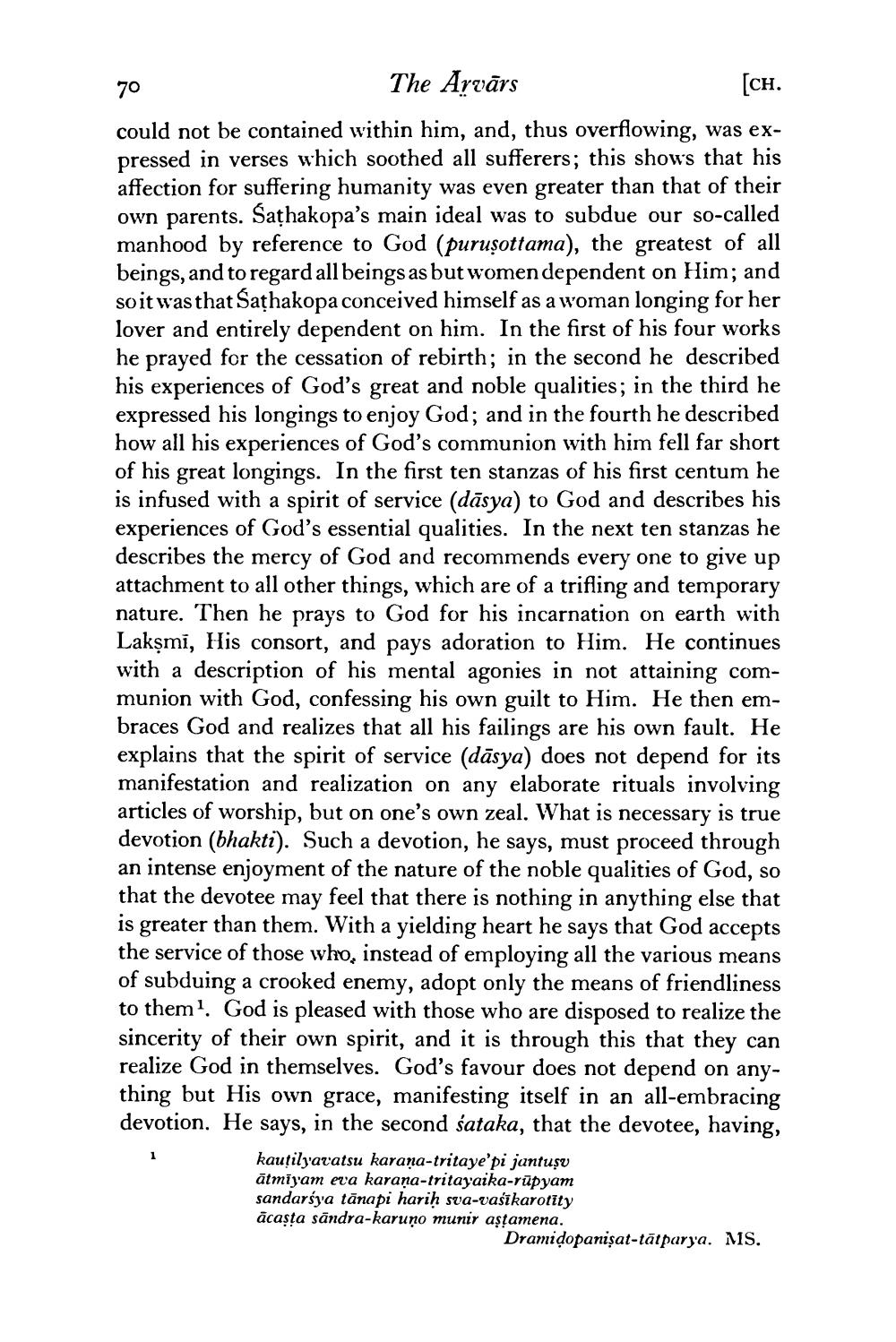________________
70
The Arvārs
CH. could not be contained within him, and, thus overflowing, was expressed in verses which soothed all sufferers; this shows that his affection for suffering humanity was even greater than that of their own parents. Sathakopa's main ideal was to subdue our so-called manhood by reference to God (puruṣottama), the greatest of all beings, and to regard all beings as but women dependent on Him; and soit was that Sathakopa conceived himself as a woman longing for her lover and entirely dependent on him. In the first of his four works he prayed for the cessation of rebirth; in the second he described his experiences of God's great and noble qualities; in the third he expressed his longings to enjoy God; and in the fourth he described how all his experiences of God's communion with him fell far short of his great longings. In the first ten stanzas of his first centum he is infused with a spirit of service (dāsya) to God and describes his experiences of God's essential qualities. In the next ten stanzas he describes the mercy of God and recommends every one to give up attachment to all other things, which are of a trifling and temporary nature. Then he prays to God for his incarnation on earth with Lakşmi, His consort, and pays adoration to Him. He continues with a description of his mental agonies in not attaining communion with God, confessing his own guilt to Him. He then embraces God and realizes that all his failings are his own fault. He explains that the spirit of service (dāsya) does not depend for its manifestation and realization on any elaborate rituals involving articles of worship, but on one's own zeal. What is necessary is true devotion (bhakti). Such a devotion, he says, must proceed through an intense enjoyment of the nature of the noble qualities of God, so that the devotee may feel that there is nothing in anything else that is greater than them. With a yielding heart he says that God accepts the service of those who, instead of employing all the various means of subduing a crooked enemy, adopt only the means of friendliness to them'. God is pleased with those who are disposed to realize the sincerity of their own spirit, and it is through this that they can realize God in themselves. God's favour does not depend on any thing but His own grace, manifesting itself in an all-embracing devotion. He says, in the second śataka, that the devotee, having,
kautilyavatsu karana-tritaye'pi jantuşu ātmiyam eva karaņa-tritayaika-rūpyam sandarsya tānapi harih sva-vasikarotity ācasta sāndra-karuņo munir aştamena.
Dramidopanişat-tātparya. MS.




